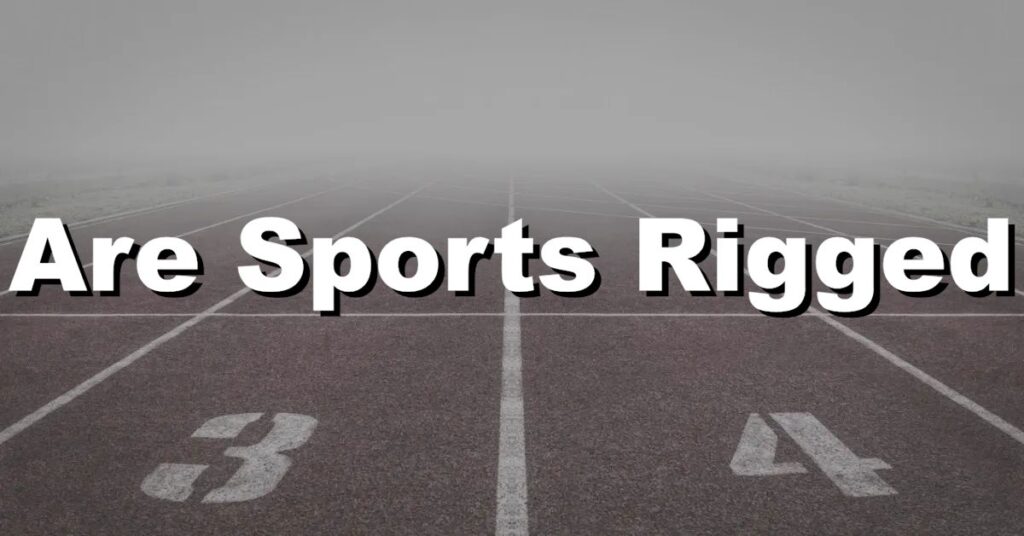The idea that professional sports are rigged has been around for decades. While there is little evidence to support this claim, it persists in popular culture.
In this blog post, we will explore the reasons behind the belief that sports are rigged and examine whether there is any truth to the claim.
The History of Sports Match-Fixing and Corruption:
Sports match-fixing and corruption have a long history, with instances dating back centuries. The motivations behind match-fixing vary, including financial gain, gambling interests, personal rivalries, or even political influence.
In various sports, there have been cases where athletes, coaches, officials, or organized criminal networks have conspired to manipulate the outcome of competitions for illicit purposes. These activities undermine the integrity and fairness of sports, eroding public trust and damaging the reputation of athletes and governing bodies.
The Economics of Sports and the Potential for Corruption:
The economic aspects of sports can create conditions that make corruption possible. The substantial financial stakes involved, including prize money, sponsorship deals, broadcast rights, and betting markets, provide incentives for individuals or groups to engage in corrupt practices.
The pursuit of financial gain can tempt athletes, officials, or other stakeholders to compromise the principles of fair play in favor of personal or illicit gains. Moreover, the commercialization and globalization of sports have expanded the reach and impact of corruption, making it a global concern.
The Ethics of Sportsmanship: Balancing Competition and Fair Play:
Sportsmanship is rooted in the principles of fair play, respect, and integrity. Athletes are expected to compete within the rules and spirit of the game, displaying honorable conduct and respect for opponents, officials, and spectators. Fair competition is essential for the credibility and enjoyment of sports.
However, the pursuit of victory and the pressures associated with professional sports can sometimes lead to ethical dilemmas, where the line between competitive edge and unfair practices becomes blurred. Upholding the ethics of sportsmanship requires a commitment to integrity, sportsmanship education, strong disciplinary measures, and a culture that prioritizes fair play.
The Role of Sports in Society and the Potential for Manipulation:
Sports hold significant cultural, social, and economic importance in society. They serve as a source of entertainment, promote physical fitness, and foster community engagement.
However, the societal significance of sports also makes them vulnerable to manipulation. Sporting events can be targeted for political propaganda, betting-related corruption, or other forms of manipulation aimed at achieving specific agendas. The influence of sports on public sentiment and identity can be exploited, highlighting the need for vigilance to safeguard the integrity of sporting competitions.
The Challenges of Regulating Sports Integrity and Preventing Rigging:
Regulating sports integrity and preventing match-fixing and corruption pose significant challenges. Coordination among international sports governing bodies, law enforcement agencies, and legal authorities is essential. Effective measures include establishing robust anti-corruption policies, implementing rigorous monitoring and detection systems, and ensuring severe penalties for offenders.
Collaboration with betting operators, educational programs for athletes and officials, whistleblower protection, and awareness campaigns are also crucial.
However, the constantly evolving nature of corruption tactics and the transnational dimensions of the problem necessitate ongoing efforts to stay ahead of those seeking to undermine sports integrity.
Conclusion
In conclusion, while there have been instances of sports being rigged in the past, the vast majority of sporting events are fair and free of any kind of rigging or cheating. Any allegations of rigging should be investigated thoroughly, but it is important to not make baseless accusations without evidence.

